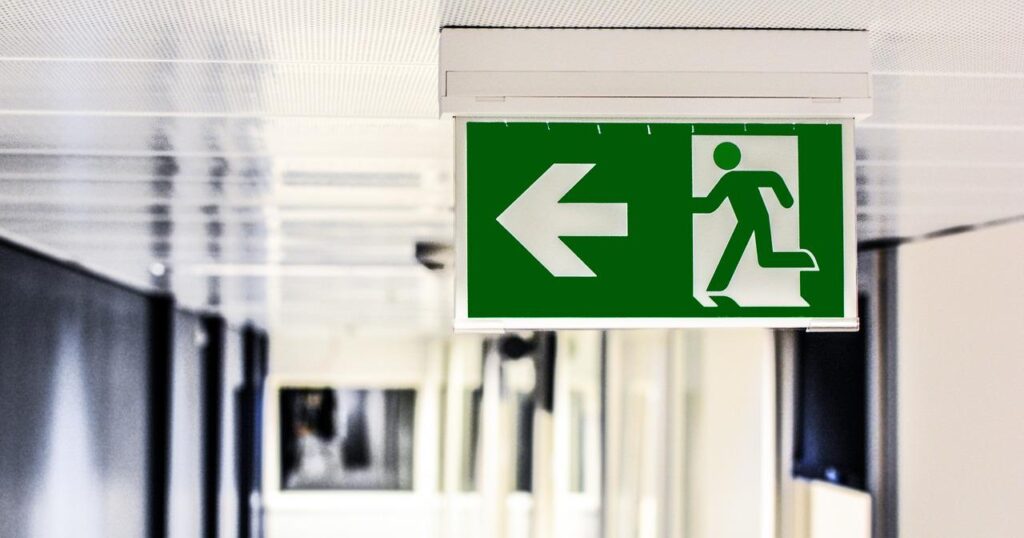So you’re in production, you’ve got insurance, and your company is doing well. Then bam! You find yourself in an emergency. Here are some of the things you need to look out for to be prepared for emergencies.
 Image Courtesy of Pixabay
Image Courtesy of Pixabay
Water Damage and Flooding
You might not be aware, but the damage that water can cause is greater than that of fire if it reaches a certain level. Depending on where you live, you are more prone to water damage either from burst riverbanks or coastal storms. However, anyone can become flooded from groundwater, a burst pipe, or even a blocked toilet. You can protect your business by installing floodgates if necessary. But you can also call 1-800 Water Damage for advice and prevention methods. And try to keep your equipment on a higher floor or raised on plinths and desks.
Your Business Must be Prepared for Fire
Fires break out all the time all over the world. Yet, in the United States alone, there are over 37,000 commercial and industrial fires per year. With an estimated $1 billion worth of damage and around 20 deaths. This is pretty much the worst scenario imaginable for your company. So you must do all you can to prevent fire at your business. So have your electrical equipment PAT tested often. Assess fire prevention gear like fire alarms and extinguishers and train employees in their use. And hold regular fire drills, so everyone knows what to do in emergencies.
Court-Ordered Legal Action
Not all emergencies and disasters are based on physical harm to your business. You could be subject to legal action at any time. There are many reasons for this, such as liability issues, copyright infringement, or breach of contract. The best way to prepare for this is to always have a legal team on retainer. That way, they know your business dealings inside out. However, you also have some responsibilities. Make sure you document and file everything related to your business, and ensure your employees are fully trained in compliance in your sector.
Incoming Cyber Attack
All businesses dread a cyber attack. And you shouldn’t think you aren’t a target if you are a small business. In 2021 alone, there were over 600 million ransomware attempts on smaller enterprises. So, here’s how you can prepare for an incoming cyber attack against you:
- Encrypt data with a VPN and always back it up.
- Educate your employees about cybercrime.
- Enforce security and cultivate a secure office.
- Hire penetration testers to check security.
- Secure private and company-sensitive data as a priority.
There is far more to cyber attack prevention. But some of the most effective methods are the simplest. It really pays off to pay for courses or bring in a cyber security expert to teach your employees since most cyber attacks come from within. And always encrypt and backup data.
Viral Pandemic Like COVID-19
Almost nobody on the planet has remained untouched by COVID-19. Over six million people have lost their lives because of it, mainly because we weren’t prepared. In-office hygiene is now at an acceptable level because of increased awareness. So you can keep employees safe if it happens again. However, there’s also a financial burden to your business. First, hygiene products aren’t free. But there’s also the chance your business can’t operate. Preparedness includes remote working, suspending supply contacts, and effective communication.
Your Business Must be Prepared for an Active Shooter
Unfortunately, we live in a world where innocent people are at risk of being gunned down as they go about their day. Blissfully unaware that there’s an active shooter about to turn reality into a nightmare. The tragic events in Uvalde, Texas, Field’s Shopping Mall in Denmark, and the assassination of former Japanese Prime Minister Shinzo Abe are just recent examples. You can prepare your business against an active shooter by working with local law enforcement for training and installing enhanced security such as panic buttons, safe rooms, and safety exits.
Financial Institution Crashes
Even if you don’t play the stock market or invest in anything, the financial institutions of the world can dramatically impact your business. National bank inflation rates, taxes, and supply chain issues all stem from the mismanagement of global money centers. And whether you are a local small business or a multinational corporation, you aren’t immune to the effects of a financial crash. But you can prepare for one. You can diversify your business, adapt your products and services and invest in technology in case of an economic downturn.
Summary
Your business must be prepared to handle anything life can throw at it. Some of these emergencies include water and fire damage, a cyber attack, and an economic downturn via a financial crash.
P.S. This post contains affiliate links.

